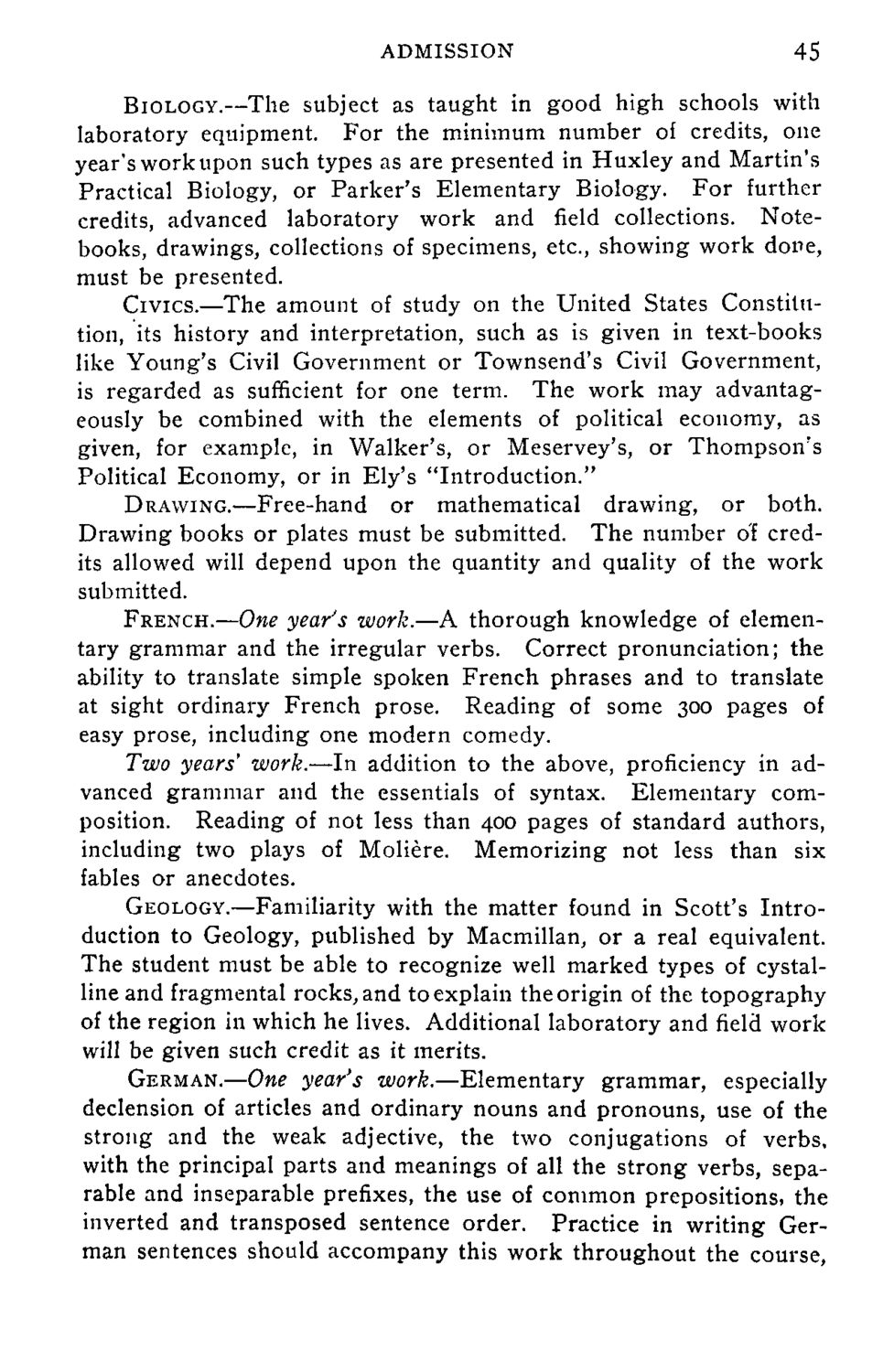| |
| |
Caption: Course Catalog - 1897-1898
This is a reduced-resolution page image for fast online browsing.

EXTRACTED TEXT FROM PAGE:
ADMISSION 45 BIOLOGY.—The subject as taught in good high schools with laboratory equipment. For the minimum number of credits, one year's work upon such types as are presented in Huxley and Martin's Practical Biology, or Parker's Elementary Biology. For further credits, advanced laboratory work and field collections. Notebooks, drawings, collections of specimens, etc., showing work done, must be presented. CIVICS.—The amount of study on the United States Constitution, its history and interpretation, such as is given in text-books like Young's Civil Government or Townsend's Civil Government, is regarded as sufficient for one term. The work may advantageously be combined with the elements of political economy, as given, for example, in Walker's, or Meservey's, or Thompson's Political Economy, or in Ely's "Introduction." DRAWING.—Free-hand or mathematical drawing, or both. Drawing books or plates must be submitted. The number of credits allowed will depend upon the quantity and quality of the work submitted. FRENCH.—One year's work.—A thorough knowledge of elementary grammar and the irregular verbs. Correct pronunciation; the ability to translate simple spoken French phrases and to translate at sight ordinary French prose. Reading of some 300 pages of easy prose, including one modern comedy. Two years' work.—In addition to the above, proficiency in advanced grammar and the essentials of syntax. Elementary composition. Reading of not less than 400 pages of standard authors, including two plays of Moliere. Memorizing not less than six fables or anecdotes. GEOLOGY.—Familiarity with the matter found in Scott's Introduction to Geology, published by Macmillan, or a real equivalent. The student must be able to recognize well marked types of cystallineand fragmental rocks, and to explain the origin of the topography of the region in which he lives. Additional laboratory and field work will be given such credit as it merits. GERMAN.—One year's work.—Elementary grammar, especially declension of articles and ordinary nouns and pronouns, use of the strong and the weak adjective, the two conjugations of verbs, with the principal parts and meanings of all the strong verbs, separable and inseparable prefixes, the use of common prepositions, the inverted and transposed sentence order. Practice in writing German sentences should accompany this work throughout the course,
| |